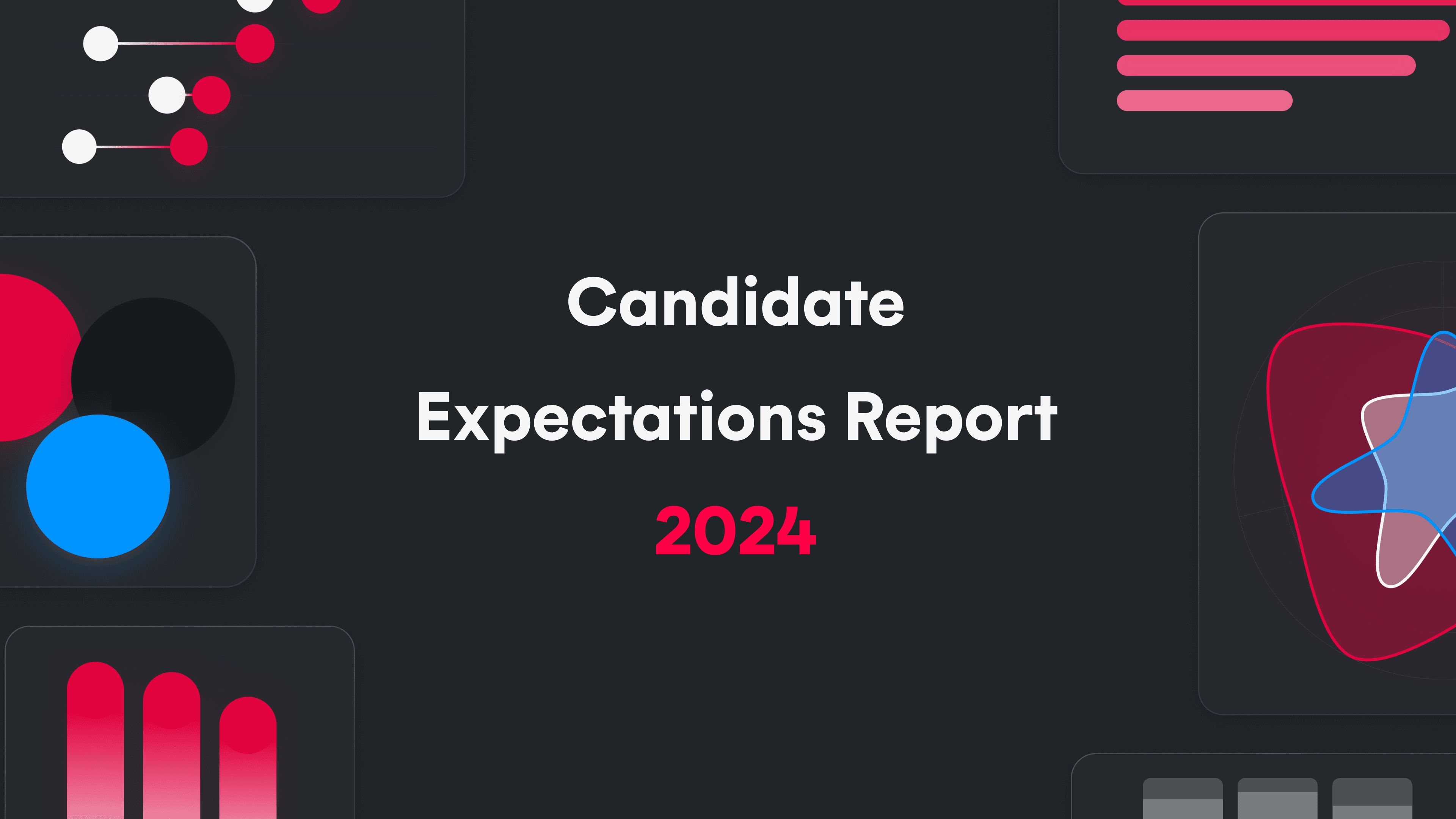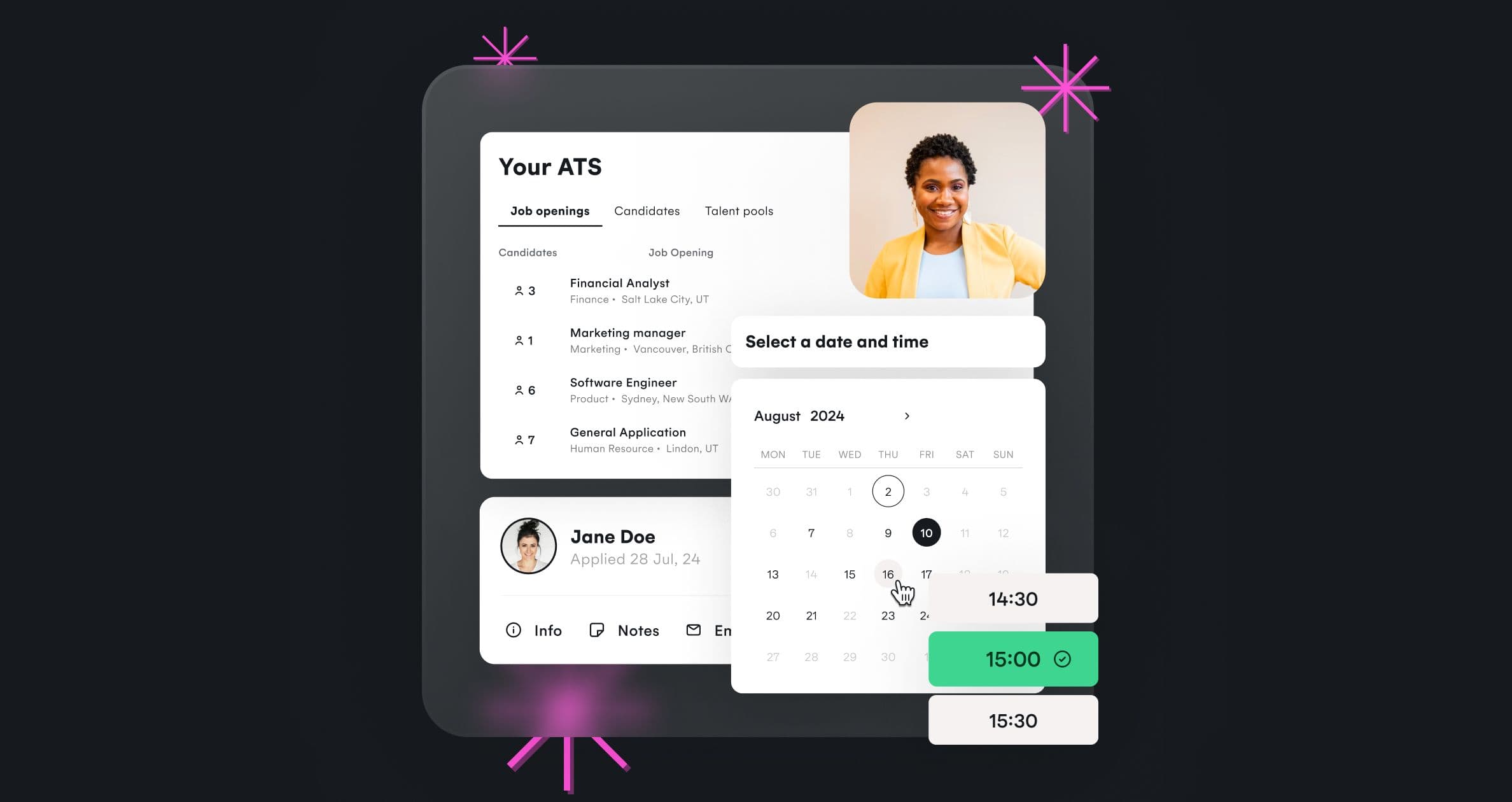As we enter 2025, we’re taking a moment to reflect on the dynamic landscape of recruitment and hiring. Last year was marked by significant shifts in candidate expectations, recruiter strategies, and overall market trends. What comes next?
Let's dive into the key insights from the recruitment industry that shed light on the state of hiring in 2024 and what to focus on in 2025.
Job seeker behavior is changing
Despite high job satisfaction rates, with 79% of U.S. workers reporting contentment in their current roles, an astonishing 86% remain open to new opportunities.
The fact that employees can be content in their role but still open to new ones highlights the need for employers to stay vigilant in their retention efforts while also maintaining strong recruitment strategies. MRK Associates explains further: "Companies are recognising that flexible work arrangements not only expand the talent pool beyond geographical limitations, but also encourage a work-life balance that attracts high-calibre candidates."
How do you deliver flexible work?
We partnered with Flexa to exchange data on what candidates want out of flexible hiring experiences. See what leading companies are doing to attract top talent.

Candidate expectations: A shifting paradigm
The Rise of Flexibility
The debate on remote work continues to influence job seekers' decisions. Employ highlights that 66% of workers consider remote work options important when accepting or rejecting a job offer. Furthermore, 23% would decline a job that requires full-time office presence. Interestingly, preferences vary across generations, with Gen Z placing the highest importance on remote work options (75%). Employers should consider offering flexible arrangements to cater to diverse workforce needs.
The Need for Speed and Efficiency
In 2024, candidates placed a premium on efficient hiring processes. Cronofy’s Candidate Expectations Report revealed a strong preference for automated interview scheduling systems over lengthy back-and-forth communications, with "70% of job seekers expecting to be able to schedule interviews online”. This preference for automation was echoed in the Employ Job Seeker Nation Report, which found that 78% of workers expected the application process to take less than 30 minutes. To succeed, hiring teams in 2025 will continue to invest in technology to streamline and speed up their hiring processes.
Communication is Key
Poor communication remained a significant pain point for candidates. The Candidate Expectations Report highlighted that 28% of job seekers found lack of responsiveness and poor communication to be the most frustrating aspect of the hiring process.

What are Candidates' expectations?
We surveyed 12,000 candidates across 7 countries. What were their priorities last year, and what were they hoping for in 2025? Read the results to get ahead today.

Recruiter challenges and how to overcome them
Leveraging Technology
The adoption of AI and other advanced tools helped reduce the average time-to-fill positions. LinkedIn's Future of Recruiting report found that "43% of companies either have implemented or plan to integrate AI interviews by 2024," highlighting the growing role of technology in recruitment. Forward thinking technology companies like Wise are already cutting their time-to-schedule from 6 days to 90 minutes thanks to interview scheduling automation.
How Wise cut interview scheduling from 6 days to 90 minutes
Learn how Wise, a global technology company with a mission to move the world’s money, accelerated their time-to-schedule with Cronofy’s scheduling automation and transformed their candidate experience.

Stress and Workload Management
While recruiter stress levels decreased slightly from 2022, 54% of recruiters still found their jobs more stressful in 2024. The primary sources of stress were an increase in open requisitions (44%) and a lack of qualified candidates (48%). Identifying repetitive, manual tasks in the recruiters day to day and finding ways to automate the hiring process is an simple way to reduce stress and workload.
Focus on Employer Branding
With competition for talent remaining fierce, the importance of employer branding was emphasized across multiple sources. Getting your employer branding right is the top recruitment strategy for 2024 according to Qualtrics. Defining "who you are as an organization, what makes you different and the value you can give candidates in return for their commitment and hard work” will be key to making this a reality.
For candidates, first impressions matter. 44% say they perceive efficient hiring processes as a sign of respect, and for a further 62%, the time taken and overall experience in interview scheduling forms perceptions of employers early on.

Looking ahead: 5 hiring trends for 2025
Here’s what the research shows will be on the horizon for recruitment this year:
1. Prioritizing building relationships with talent
- Companies who focus on continuous talent relationship management will build robust networks that go beyond immediate hiring needs
- People strategies that include proactive candidate engagement, strategic networking, and dynamic talent pool development help attract quality future hires
2. Work models will evolve
- Hybrid work remains dominant with 57% of companies preferring this approach, while 34% plan to return to full in-office work
- Promoting workplace flexibility continues to be a key differentiator for companies when attracting top talent
3. AI’s integration in recruitment will continue
- AI is set to revolutionize recruitment by automating tasks, conducting initial interviews, reducing bias, and providing data-driven insights
- Like any new technology, AI needs careful consideration so we keep the human in HR, but when done well will enhance efficiency and effectiveness in candidate evaluation, selection and performance management
4. Emphasis on Diversity and Inclusion
- DEI is still a critical factor in recruitment strategies, with 53% of U.S. workers considering it key to employment decisions
- Companies who implement more robust diversity tracking and inclusion initiatives to meet evolving workforce expectations will be employers of choice for candidates
5. Prioritizing learning and development to nurture talent
- Recruitment strategies will shift towards skills-based hiring and emphasize continuous learning opportunities
- Focusing on internal talent development will nurture and shape the skills of existing employees, encouraging them to stay within the company long-term
Scheduling interviews now takes 30 seconds, leaving plenty of time for upskilling
Here's how one recruitment coordinator used Cronofy in BambooHR to save hours of manual scheduling time, enabling her to upskill within her organization and deliver more valuable experiences to members of ONWA's community.

Getting ready for success in 2025
The hiring landscape in 2024 was characterized by a delicate balance between candidate expectations and recruiter capabilities. As we move into 2025, those wanting to succeed in hiring the top candidates will need to prioritize efficient processes, clear communication, and flexibility, all while leveraging automation in the right places to streamline operations and enhance the candidate experience.
By staying attuned to these trends and adapting accordingly, organizations can position themselves to attract and retain top talent in an increasingly competitive market.
Ready to streamline your interview scheduling workflow? See how Cronofy solves interview scheduling for in-house recruitment teams and recruiting operations leaders.




